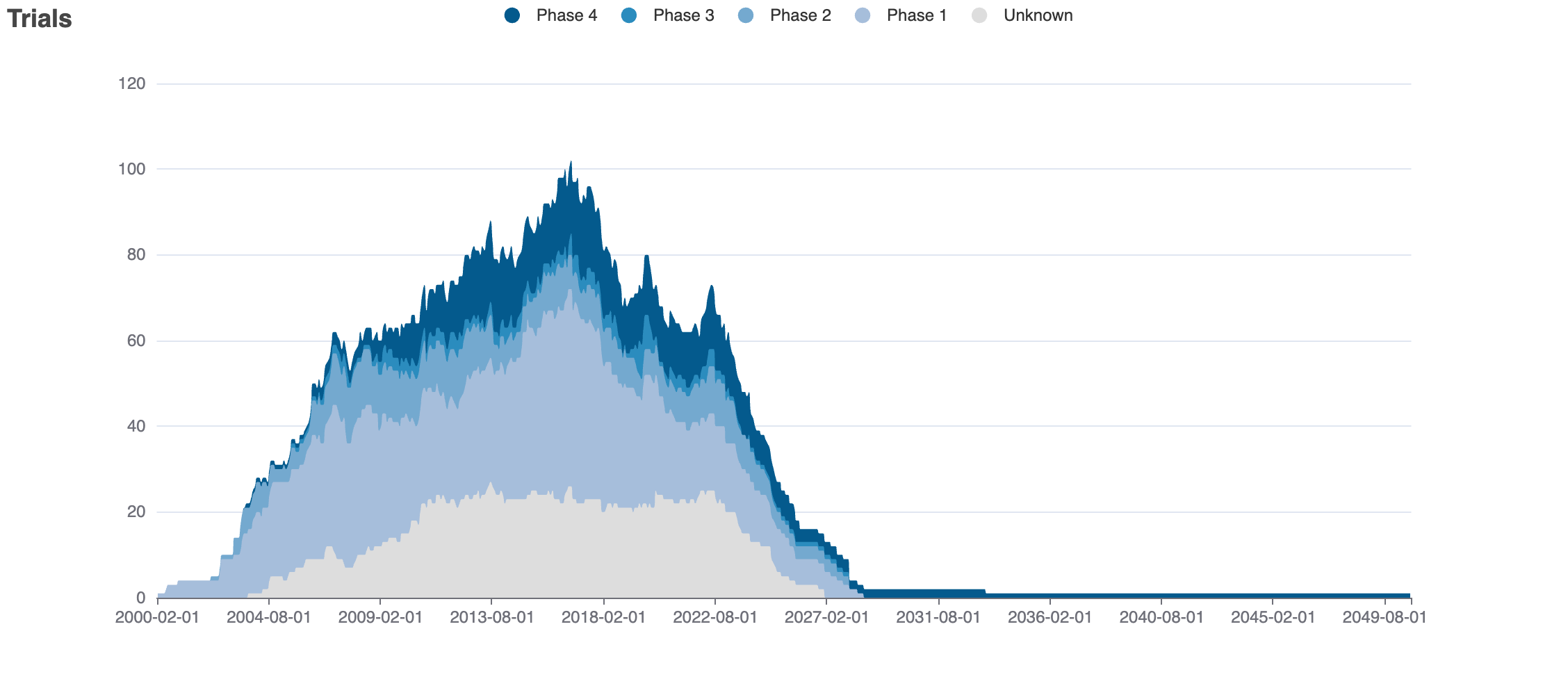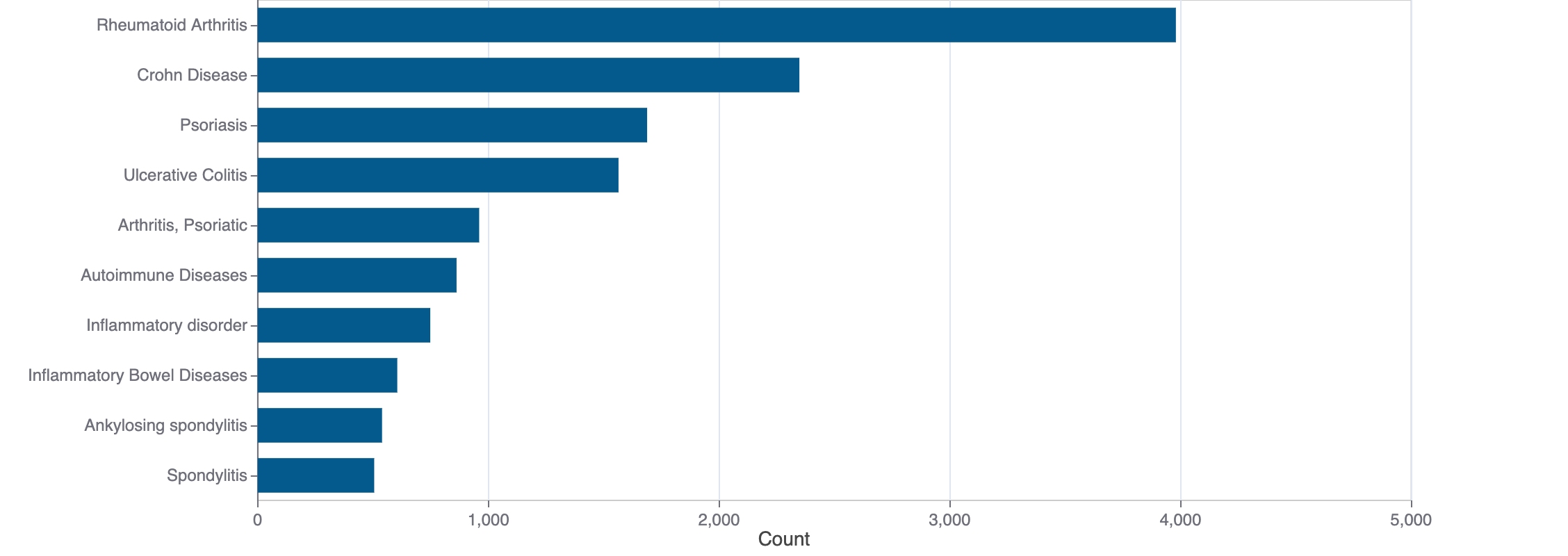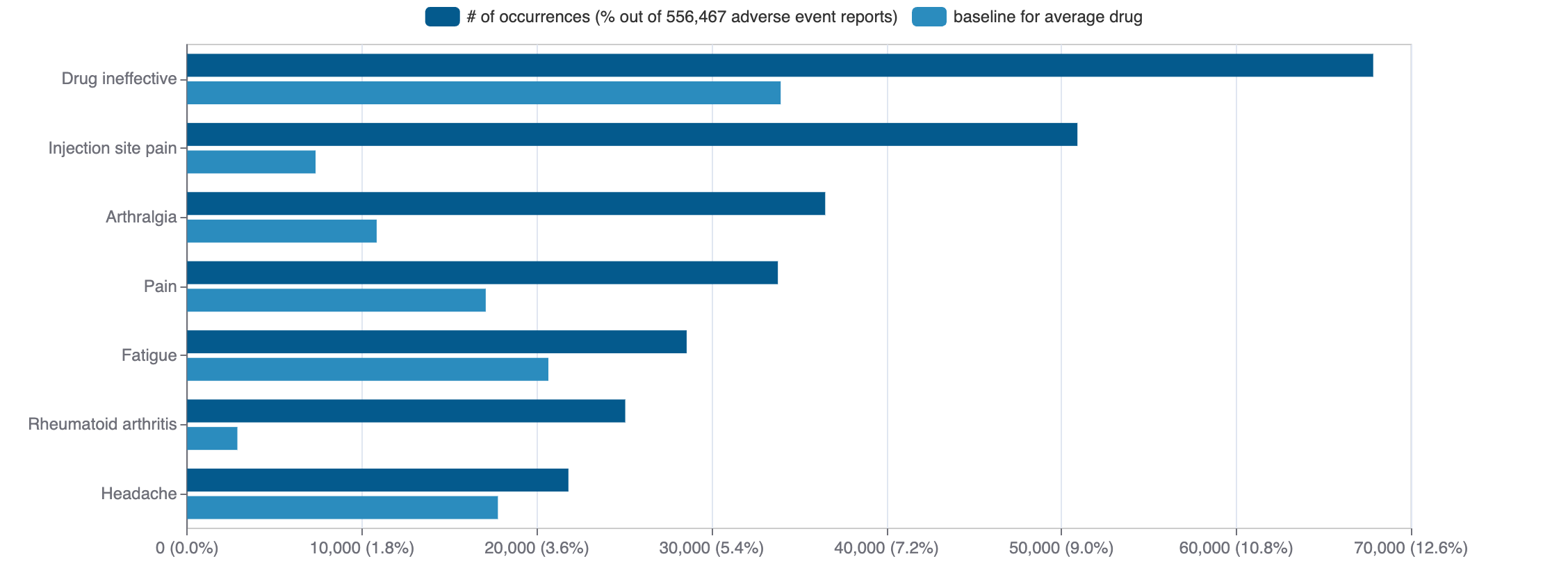Neupro(rotigotine)
Neupro (rotigotine) is a small molecule pharmaceutical. Rotigotine was first approved as Neupro on 2006-02-15. It is used to treat parkinson disease and restless legs syndrome in the USA. It has been approved in Europe to treat parkinson disease and restless legs syndrome. The pharmaceutical is active against D(2) dopamine receptor. In addition, it is known to target D(4) dopamine receptor, D(1A) dopamine receptor, D(1B) dopamine receptor, and D(3) dopamine receptor.
Download report
Favorite
Commercial
Trade Name
FDA
EMA
Neupro
Drug Products
FDA
EMA
New Drug Application (NDA)
New Drug Application (NDA)
Abbreviated New Drug Application (ANDA)
Abbreviated New Drug Application (ANDA)
Rotigotine
Tradename | Company | Number | Date | Products |
|---|---|---|---|---|
| NEUPRO | UCB | N-021829 RX | 2007-05-09 | 6 products, RLD |
Labels
FDA
EMA
Brand Name | Status | Last Update |
|---|---|---|
| neupro | New Drug Application | 2020-05-01 |
Indications
FDA
EMA
Indication | Ontology | MeSH | ICD-10 |
|---|---|---|---|
| parkinson disease | EFO_0002508 | D010300 | G20 |
| restless legs syndrome | EFO_0004270 | D012148 | G25.81 |
Agency Specific
FDA
EMA
No data
HCPCS
No data
Clinical
Clinical Trials
90 clinical trials
View more details

Mock data
Subscribe for the real data
Subscribe for the real data
Indications Phases 4
Indication | MeSH | Ontology | ICD-10 | Ph 1 | Ph 2 | Ph 3 | Ph 4 | Other | Total |
|---|---|---|---|---|---|---|---|---|---|
| Parkinson disease | D010300 | EFO_0002508 | G20 | 11 | 8 | 24 | 9 | 3 | 53 |
| Restless legs syndrome | D012148 | EFO_0004270 | G25.81 | — | 4 | 8 | 3 | — | 15 |
| Anxiety disorders | D001008 | EFO_0006788 | F41.1 | — | — | — | 1 | — | 1 |
Indications Phases 3
Indication | MeSH | Ontology | ICD-10 | Ph 1 | Ph 2 | Ph 3 | Ph 4 | Other | Total |
|---|---|---|---|---|---|---|---|---|---|
| Apathy | D057565 | — | — | 1 | — | — | 1 | ||
| Chronic kidney failure | D007676 | EFO_0003884 | N18.6 | — | — | 1 | — | — | 1 |
Indications Phases 2
Indication | MeSH | Ontology | ICD-10 | Ph 1 | Ph 2 | Ph 3 | Ph 4 | Other | Total |
|---|---|---|---|---|---|---|---|---|---|
| Alzheimer disease | D000544 | EFO_0000249 | F03 | — | 1 | — | — | — | 1 |
| Stroke | D020521 | EFO_0000712 | I63.9 | — | 1 | — | — | — | 1 |
| Perceptual disorders | D010468 | R41.4 | — | 1 | — | — | — | 1 | |
| Fibromyalgia | D005356 | EFO_0005687 | M79.1 | — | 1 | — | — | — | 1 |
| Neurologic manifestations | D009461 | — | 1 | — | — | — | 1 | ||
| Communication disorders | D003147 | F80.9 | — | 1 | — | — | — | 1 | |
| Metabolic syndrome | D024821 | EFO_0000195 | E88.81 | — | 1 | — | — | — | 1 |
| Central nervous system diseases | D002493 | HP_0002011 | G96.9 | — | 1 | — | — | — | 1 |
| Brain diseases | D001927 | HP_0001298 | G93.40 | — | 1 | — | — | — | 1 |
| Nervous system diseases | D009422 | G00-G99 | — | 1 | — | — | — | 1 |
Show 14 more
Indications Phases 1
Indication | MeSH | Ontology | ICD-10 | Ph 1 | Ph 2 | Ph 3 | Ph 4 | Other | Total |
|---|---|---|---|---|---|---|---|---|---|
| Healthy volunteers/patients | — | 8 | — | — | — | — | 8 | ||
| Therapeutic equivalency | D013810 | 1 | — | — | — | — | 1 |
Indications Without Phase
No data
Epidemiology
Epidemiological information for investigational and approved indications
View more details
Drug
General
| Drug common name | ROTIGOTINE |
| INN | rotigotine |
| Description | Rotigotine is a member of tetralins. |
| Classification | Small molecule |
| Drug class | — |
| Image (chem structure or protein) | |
| Structure (InChI/SMILES or Protein Sequence) | CCCN(CCc1cccs1)[C@H]1CCc2c(O)cccc2C1 |
Identifiers
| PDB | — |
| CAS-ID | 99755-59-6 |
| RxCUI | 616739 |
| ChEMBL ID | CHEMBL1303 |
| ChEBI ID | — |
| PubChem CID | 59227 |
| DrugBank | DB05271 |
| UNII ID | 87T4T8BO2E (ChemIDplus, GSRS) |
Target
Alternate
Variants
Clinical Variant
No data
Financial
No data
Trends
PubMed Central
Top Terms for Disease or Syndrome:

Mock data
Subscribe for the real data
Subscribe for the real data
Additional graphs summarizing 1,756 documents
View more details
Safety
Black-box Warning
No Black-box warning
Adverse Events
Top Adverse Reactions

Mock data
Subscribe for the real data
Subscribe for the real data
11,398 adverse events reported
View more details
Premium feature
Learn more about premium features at pharmakb.com
Learn more
